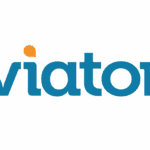Introduction to Freelancing and Full-Time Work
Choosing a career path can feel like standing at a crossroads, each direction holding its own unique allure and challenges. On one side, you have freelancing—a realm bursting with flexibility, creativity, and the potential for higher income. On the other side lies full-time work—offering stability, benefits, and a structured routine that many crave. With both options presenting their distinct advantages and drawbacks, deciding between freelancing vs. full-time employment is not just about what sounds appealing; it’s about finding what aligns best with your lifestyle and goals.
Are you drawn to the idea of working from anywhere in your pajamas? Or do you prefer knowing there’s a consistent paycheck waiting for you every month? Let’s delve into the pros and cons of each option to help illuminate your choices as you navigate this pivotal decision in your professional journey.
Pros of Freelancing: Flexibility, Control, and Potential for Higher Income
Freelancing opens the door to a world of flexibility. You can set your own hours and choose where you work. This autonomy allows you to design a schedule that suits your lifestyle, whether that means working in cozy cafes or from the comfort of home.
Control is another appealing aspect of freelancing. You’re the boss of your projects, deciding which clients to take on and what type of work excites you most. This sense of ownership can lead to greater job satisfaction.
The potential for higher income also stands out in freelancing. Unlike traditional jobs with fixed salaries, freelancers can often charge higher rates based on their skills and experience. With multiple clients, there’s room to increase earnings significantly compared to full-time roles—if you’re willing to hustle for it!
Cons of Freelancing: Inconsistent Income, No Benefits, and Self-Motivation Required
Freelancing comes with its share of challenges. One major hurdle is inconsistent income. Unlike a salaried position, freelance work can fluctuate month to month. This unpredictability can lead to financial stress for those unprepared to handle lean periods.
Another downside is the absence of benefits typically associated with full-time jobs. Freelancers often miss out on health insurance, retirement plans, and paid leave. These perks provide security that freelancers must arrange independently, which can be time-consuming and costly.
Self-motivation is crucial in freelancing but not always easy to maintain. Without a boss or structured environment, staying productive requires discipline and robust time-management skills. Distractions abound at home or wherever you choose to work, making focus essential yet challenging for many independent workers.
Pros of Full-Time Work: Steady Income, Benefits, and Networking Opportunities
One of the biggest advantages of full-time work is the steady income it provides. A monthly paycheck allows for better budgeting and financial planning. This predictability can ease stress, making it easier to manage daily expenses.
Full-time positions often come with various benefits. Health insurance, retirement plans, and paid leave are just a few perks that enhance overall job satisfaction. These additional layers of security can significantly contribute to your well-being.
Moreover, working in a structured environment opens doors for networking opportunities. Engaging with colleagues and industry professionals fosters relationships that could lead to future career advancements or collaborations.
Networking becomes second nature when you’re part of an organization where you share common goals with others in your field. Building these connections not only enriches your professional life but can also provide valuable support when navigating challenges at work or exploring new paths within your career journey.
Cons of Full-Time Work: Limited Flexibility and Lack of Control Over Tasks
One of the most significant drawbacks of full-time work is the limited flexibility it offers. You’re tethered to a schedule that often doesn’t align with your natural productivity peaks. Mornings can feel like a race against time.
In this environment, you may find yourself spending hours on tasks that don’t ignite your passion or creativity. Instead, you’re bound by assigned duties and organizational demands. This can lead to feelings of frustration.
Moreover, you often lack control over how projects unfold. Your input might be secondary to corporate priorities or team dynamics. This hierarchy can stifle innovation and reduce job satisfaction.
Navigating office politics becomes another layer of complexity in full-time roles. The need for consensus can slow decision-making processes and dilute individual contributions. Each day presents its own set of challenges within established frameworks, leaving little room for personal expression or initiative.
Which Option is Right for You? Factors to Consider
Choosing between freelancing and full-time work requires introspection. Consider your personal circumstances first. Do you value stability, or are you drawn to the excitement of uncertainty?
Think about your financial situation as well. Freelancers often face fluctuating income, while a steady paycheck from a full-time job can provide peace of mind.
Your work style plays a crucial role too. Are you self-motivated? Freelancers need discipline. If you’re more comfortable in structured environments with set tasks, full-time employment might suit you better.
Evaluate your long-term career goals. Freelancing offers diverse projects that can build varied skills quickly, but climbing the corporate ladder typically comes with defined paths in traditional jobs.
Reflect on these factors closely to determine which path aligns with your aspirations and lifestyle preferences.
Finding
Finding the right career path is a deeply personal journey. Whether you lean towards freelancing or full-time work, understanding your own values and priorities is essential. Take time to assess what matters most to you—be it flexibility, stability, income potential, or benefits.
Consider trying out freelance projects while maintaining a part-time job if you’re unsure. This can give you insight into both worlds without fully committing to one side. Networking with professionals in each field can also provide valuable perspectives.
There’s no one-size-fits-all answer here. Your choice will depend on your lifestyle preferences and long-term goals. Embrace the exploration process; it’s all about finding what fits best for your unique situation and aspirations.














